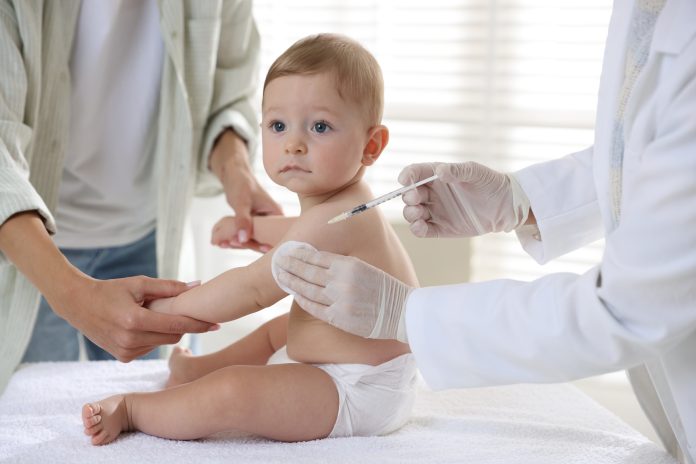Murdoch Children’s Research Institute launches an international trial of a 21-valent pneumococcal vaccine to protect babies against pneumonia, meningitis, and sepsis
The Murdoch Children’s Research Institute has launched an international trial of a new 21-strain pneumococcal vaccine for babies, a world-first trial in infants. This study aims to see if the vaccine can safely provide broader protection against serious infections like pneumonia, meningitis, and sepsis. By protecting infants against more types of pneumococcal bacteria than current vaccines, researchers hope this trial could help keep babies healthier and prevent life-threatening illnesses worldwide.
Pneumococcal vaccine: protecting infants from serious infections
Infants are currently administered the 13-valent pneumococcal conjugate vaccine, commonly referred to as PCV13. This vaccine is designed to protect against 13 specific strains of pneumococcal bacteria, which are known to cause severe diseases such as sepsis and meningitis, among others. Pneumococcal infections can lead to serious health complications, particularly in young children, making vaccination a vital part of preventive healthcare.
PCV13 is included in the standard childhood immunisation schedule in many countries, including the United Kingdom. It is typically given to infants at 16 weeks of age, following an initial dose at 8 weeks and a booster at 12 months. This vaccination strategy helps ensure that children develop a strong immune defense against these strains early in life, ultimately reducing the incidence of pneumococcal disease in the population. Regular immunisation not only protects individual children but also contributes to the overall health and safety of the community by lowering the spread of these harmful bacteria.
A new 21-strain standard for pneumococcal protection
The new 21-strain pneumococcal vaccine could more broadly protect children from severe disease by expanding the number of strains it targets. The trial will involve a pneumococcal vaccine given as a four-dose regimen (given at two, four, and six months of age and a booster dose at 12-15 months). All other vaccines on the National Immunisation Program will be given alongside the pneumococcal vaccine.
Participants must be:
- Aged two months at study entry (42 to 89 days old);
- Healthy;
- Full-term birth and birth weight over 2.5kg;
Participants must meet specific health criteria to ensure their safety and well-being throughout the trial. This includes being born after a gestation period of 28 to 36 weeks with a birth weight of 1.5 kg or greater, and being assessed as medically stable.
MCRI Professor Margie Danchin said having a vaccine that could offer broader protection was crucial to protecting more children from severe preventable infections and death.
“Pneumococcal infections are caused by a common bacterium that lives in the nose and throat and can lead to serious complications such as pneumonia and severe infections of the bloodstream and lining of the brain,” she said.
“There are more than 90 different strains of the pneumococcal bacteria, and no vaccine is able to protect against every strain. But our trial of this new pneumococcal vaccine, which has shown promising results in earlier studies and will protect against 21 strains, has the potential to save more lives.
“We always need to ensure that children and families are being offered the best protection against severe disease with new and improved vaccines. However, we need to demonstrate that they are safe and can trigger a protective antibody response in young children before they can be introduced into the national immunisation schedule.”
Lisa, whose daughter Lucy, 3 months, is taking part in the trial, said she welcomed the opportunity to play a part in finding a more effective pneumococcal vaccine.
“Being a nurse, I know how super important vaccination is to keeping my baby safe,” she said. As a parent of a young baby, especially in the winter months, you want as much protection as possible. Without trials like this, we wouldn’t discover better, more effective vaccines. Research is what helps to safeguard our children for the future.”











